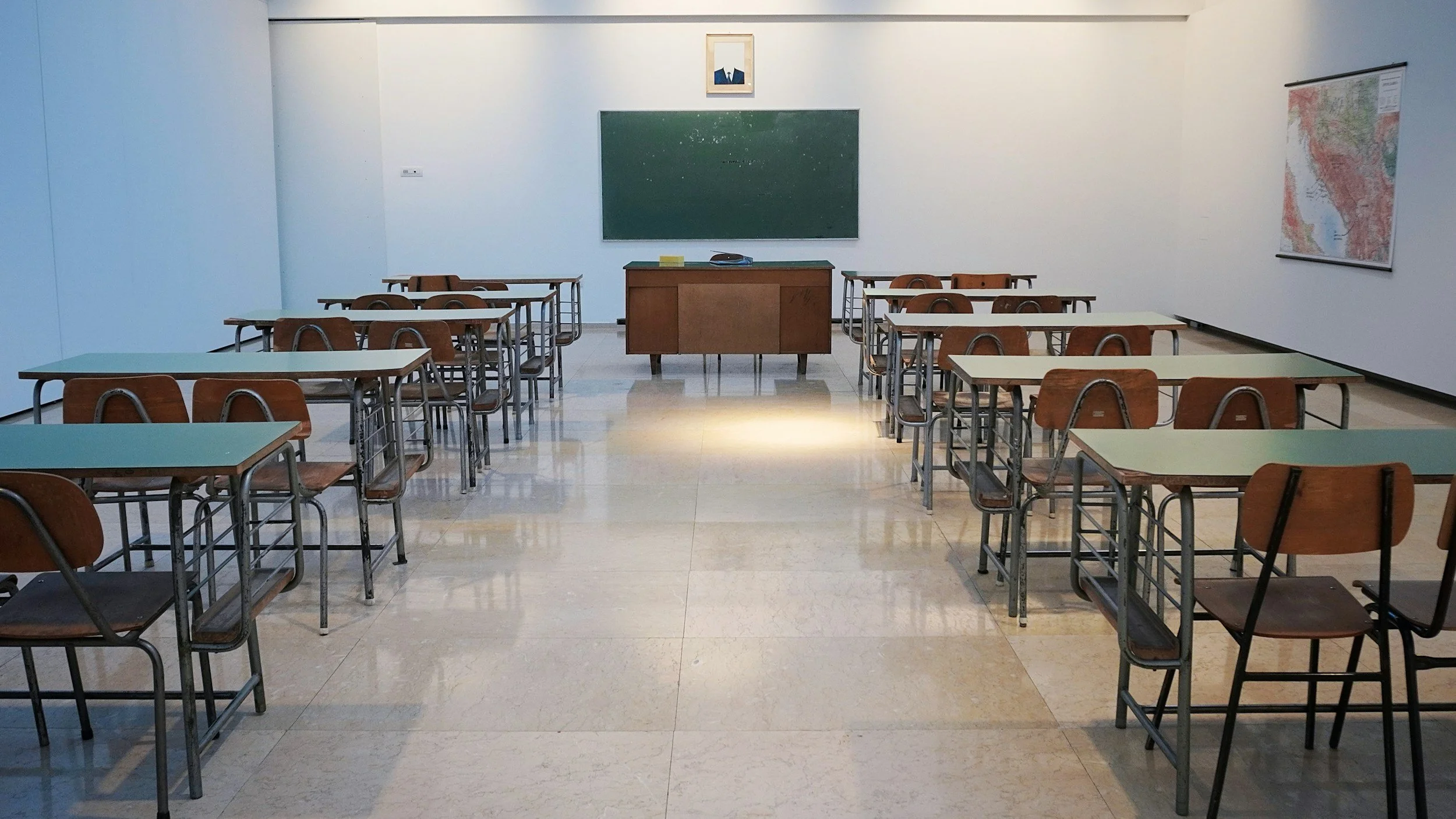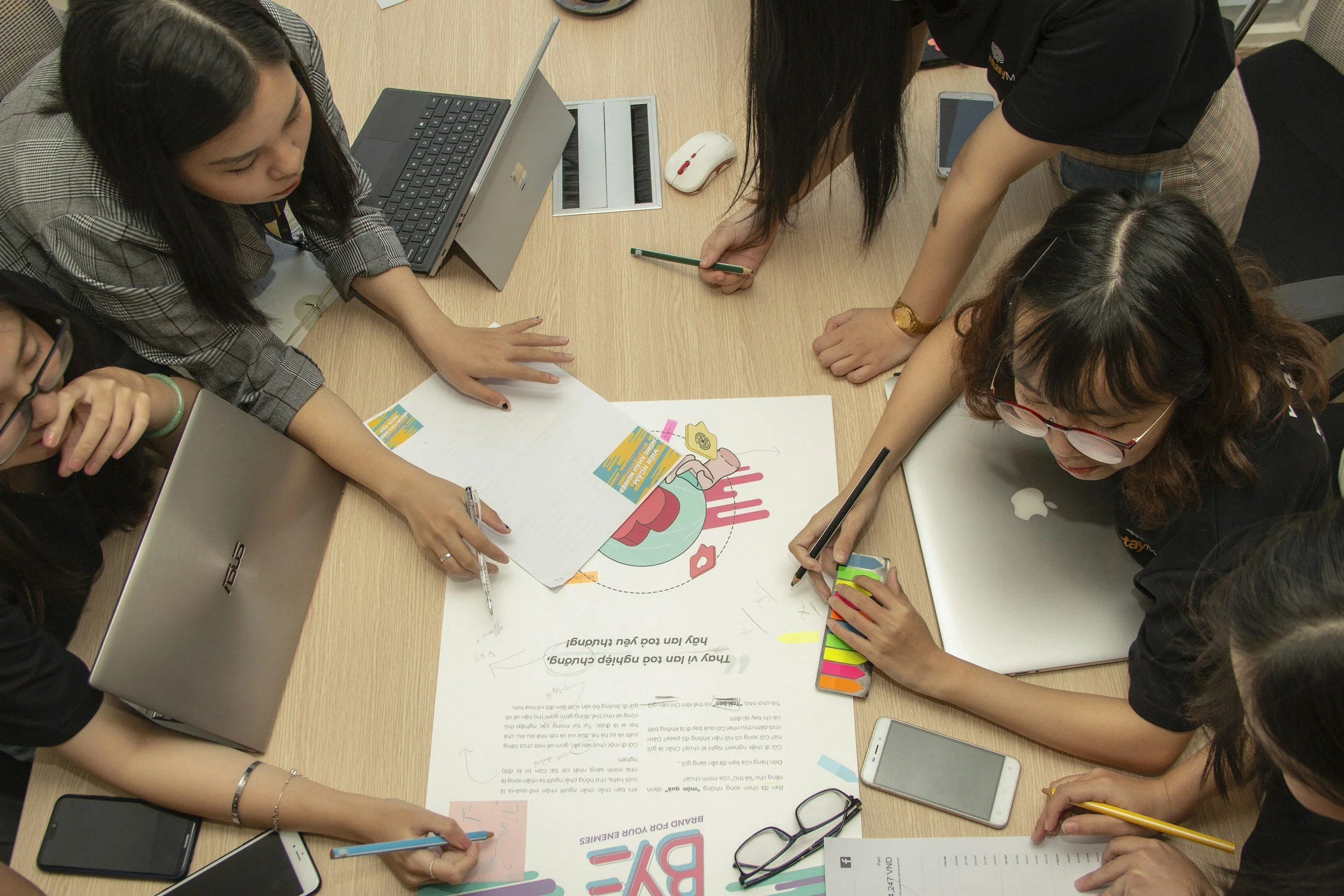Monitoring Grades Without Damaging Motivation
Many parents struggle to find the right balance between staying informed and creating pressure. This article explains how constant grade checking can hurt motivation, how ignoring grades can cause problems, and what healthy accountability actually looks like.
Many parents feel torn between two fears.
If I check grades every day, am I creating pressure and anxiety
If I do not check at all, am I being irresponsible
This tension is real. Parents want to stay involved, but they also want their student to become independent and responsible.
The truth is that constant grade monitoring often creates stress without improving outcomes. But complete disengagement can also leave students without structure.
The goal is not constant surveillance or total hands off parenting. The goal is healthy accountability.
Why Daily Grade Checking Often Backfires
Checking grades every day may feel proactive, but it often produces unintended consequences.
Students begin to feel:
Constantly evaluated
Pressured to perform
Afraid of making mistakes
Defined by numbers rather than effort
This can shift motivation from learning to avoidance. Students stop focusing on growth and start focusing on not getting in trouble.
Over time, this can damage confidence and trust.
Why No Monitoring Can Also Be a Problem
On the other extreme, no monitoring removes structure.
Some students thrive with independence. Many do not.
Without any accountability, students may:
Miss assignments
Fall behind quietly
Avoid difficult subjects
Hide struggles
By the time parents notice, the situation is often already serious.
The Healthy Middle Ground
The healthiest approach is intentional monitoring, not constant monitoring.
This means shifting from daily checking to structured check ins.
Instead of asking about numbers every day, focus on patterns and habits.
This builds responsibility without fear.
What Productive Monitoring Looks Like
Healthy involvement sounds like this:
What assignments are coming up this week
When is your next test
What is your plan for studying
What class feels hardest right now
These questions focus on planning and learning rather than punishment and pressure.
How Often Should Parents Check Grades
There is no perfect rule, but for most families:
Once a week grade checks are sufficient
More frequent checks may be needed during transitions or struggles
Less frequent checks may work for highly independent students
The frequency should match the student’s maturity and needs, not parental anxiety.
Signs Monitoring Is Helping
You may notice:
More honest conversations
Less defensive reactions
Better planning
Earlier communication about struggles
These are signs that accountability is building responsibility.
Signs Monitoring Is Hurting
Warning signs include:
Increased secrecy
Anxiety around school
Avoidance of conversations
Fear based motivation
These indicate the approach needs adjustment.
The Role of Support Systems
Healthy accountability is easier when students are supported.
Teachers, tutors, and structured routines create external systems that reduce the need for parental monitoring.
When students have structure, parents can step back without fear.
The Bottom Line
Checking grades is not the problem. How and why you check matters more than how often.
The goal is not control. The goal is growth.
When monitoring builds responsibility instead of fear, students develop confidence, independence, and long term success.
Rebuilding the Math Foundation Your Student Needs to Succeed
Many students struggle in math because of hidden gaps in their foundation. This article explains how to diagnose missing skills, repair them in the right order, and rebuild confidence through real understanding rather than memorization.
Many students struggle in math not because they are bad at it, but because they are standing on a weak foundation.
Math builds in layers. Each concept depends on the ones before it. When early gaps form, everything above becomes harder. Over time, students stop trusting themselves, lose confidence, and begin to feel like math just is not for them.
The good news is this. A broken foundation can be diagnosed and repaired. And when it is, students often improve faster than parents expect.
Why Math Gaps Are So Common
Math gaps do not happen all at once. They form quietly.
A student misses a few key concepts. They move on anyway. The class keeps going. Confusion compounds.
Sometimes this happens because of:
Fast paced classrooms
Learning disruptions
Curriculum changes
Missed school time
Teaching style mismatch
Students can keep passing classes while carrying hidden gaps for years.
Step One Diagnose the Foundation
Before fixing anything, you need clarity.
Parents often try to solve problems by adding more practice, more homework, or more tutoring time. But without diagnosis, this only creates frustration.
Start with simple questions:
Can your student do basic arithmetic without a calculator
Do they understand fractions and decimals
Can they manipulate variables confidently
Do they understand why formulas work or just how to use them
Weakness in early skills always shows up later in algebra, geometry, and higher math.
Diagnosis should focus on understanding, not speed.
Step Two Identify the True Gaps
Students often say they are bad at math when the issue is actually very specific.
For example:
Struggling in algebra may be a fraction problem
Struggling in geometry may be an algebra problem
Struggling in calculus may be an algebra and functions problem
Everything traces backward.
The goal is not to label the student. The goal is to locate the broken links in the chain.
Step Three Repair in the Right Order
Foundations must be rebuilt from the bottom up.
This means:
Fixing number sense before algebra
Fixing algebra before advanced problem solving
Fixing functions before calculus concepts
Trying to patch higher level skills without repairing earlier gaps leads to constant confusion.
True repair happens in sequence.
Step Four Build Confidence Through Mastery
As gaps close, confidence grows naturally.
Students begin to:
Understand problems faster
Make fewer careless mistakes
Feel calmer during tests
Participate more in class
Confidence is not created through praise alone. It is created through real understanding.
Step Five Create a System That Prevents New Gaps
Repairing the foundation is only part of the solution.
To prevent new gaps, students need:
Consistent review
Weekly practice
Early support when confusion appears
Structured learning habits
This keeps the foundation strong as new material builds on top of it.
The Role of Support in Rebuilding Math Skills
Rebuilding a math foundation often requires guided support.
This is not about doing more work. It is about doing the right work in the right order.
With proper diagnosis and structure, students who once felt lost often experience rapid improvement.
The Bottom Line
Math struggles are rarely about ability.
They are about missing pieces.
When you diagnose the gaps, repair the foundation, and rebuild in the correct sequence, math becomes understandable again.
And when understanding returns, confidence follows.
How Much Should Parents Be Involved in Homework
Parents often wonder how much they should help with homework. Too much involvement can create dependence, while too little can leave students overwhelmed. This article explains how to find the right balance so students build independence while still receiving the support they need.
One of the most common questions parents ask is simple but emotionally loaded.
How much should I be helping with homework?
Some parents worry they are doing too much and creating dependence. Others worry they are not doing enough and letting their student fall behind.
The truth is that both extremes can hurt learning. The goal is not to remove struggle or to disappear entirely. The goal is to support growth while building independence.
Why Too Much Help Can Backfire
When parents take over homework, even with good intentions, students miss critical learning opportunities.
If a parent:
Explains every step
Fixes mistakes immediately
Sits next to the student the entire time
The student may finish assignments successfully but fail to build problem solving skills.
Over time, this creates hidden dependence. The student learns that someone else will rescue them when work becomes difficult.
This often leads to poor test performance because the support system disappears during exams.
Why Too Little Help Can Also Be Harmful
On the other hand, complete hands off parenting can leave students stuck.
When students feel lost and unsupported, they may:
Procrastinate
Avoid difficult subjects
Develop anxiety about school
Without guidance, small gaps grow into major obstacles.
Students need structure and encouragement even as they develop independence.
The Ideal Role for Parents
The healthiest role for parents is not homework manager or homework bystander.
It is learning coach.
A learning coach focuses on the process, not the answers.
This means helping students:
Organize their time
Break large assignments into steps
Reflect on mistakes
Build consistent routines
Parents should guide thinking, not replace it.
What Productive Homework Support Looks Like
Effective involvement sounds like this:
What is your plan for starting this assignment
Which part feels most confusing right now
Where could you look for help before I step in
How did your teacher explain this in class
These questions develop problem solving skills while still offering support.
When Parents Should Step In More
There are moments when extra involvement is appropriate.
Parents should increase support when a student:
Is overwhelmed and shut down
Does not understand foundational material
Is missing assignments consistently
Shows rising anxiety about school
Temporary structure helps students regain control and confidence.
When Parents Should Step Back
Parents should gradually reduce involvement when a student:
Begins starting homework independently
Attempts problems before asking for help
Uses strategies learned previously
Manages time more effectively
This signals that the student is developing academic maturity.
How Tutoring Fits Into the Balance
Tutoring can play an important role in maintaining healthy boundaries at home.
A tutor can handle academic instruction so parents can focus on encouragement and structure rather than daily explanations.
This often improves both learning and family relationships.
The Bottom Line
Parents should not remove all struggle, but they should not leave students to struggle alone.
The right level of involvement builds confidence, responsibility, and long term success.
When parents act as learning coaches rather than homework fixers, students develop the skills they need to thrive independently.
The Homework Studying Gap That Trips Up Most Students
Many students earn strong homework grades but still struggle on tests. This happens when homework replaces real studying. This article explains the homework studying gap and how parents can help their student close it for better long term results.
Many parents are confused when they see this pattern.
Their student completes homework every night, turns in assignments on time, and still performs poorly on tests.
It feels contradictory. If the work is getting done, why are the grades not improving?
The answer lies in a gap most families never realize exists. Homework and studying are not the same thing, and confusing them is one of the biggest reasons capable students underperform.
Homework Success Can Create False Confidence
Homework is designed to reinforce material, not to master it.
Most homework allows students to:
Use notes
Follow examples
Ask friends or teachers
Look at prior problems
This makes homework feel manageable even when understanding is shaky.
Students can earn strong homework grades while still lacking deep comprehension.
Then test day arrives, and everything changes.
Tests Measure Independent Understanding
Tests remove the support system.
No notes
No examples
No hints
Suddenly students must retrieve information and solve problems on their own.
If their learning never moved beyond guided practice, performance drops even though homework looked strong.
Parents often think the test was unfair. In reality, the test is exposing the gap between assisted work and independent mastery.
Why Students Rely Too Heavily on Homework
Most students believe that completing assignments equals studying.
They think:
If I did the homework, I studied
But homework is only one small part of learning. It checks completion, not long term retention.
Without additional review and practice, information fades quickly.
What Real Studying Actually Looks Like
Studying is about preparing for future performance, not finishing past tasks.
Effective studying includes:
Reviewing notes without looking at solutions
Explaining concepts out loud
Practicing problems from scratch
Quizzing yourself before checking answers
This feels harder than homework, which is why many students avoid it.
But this type of effort is what builds test ready understanding.
How the Gap Develops Over Time
Early in school, homework and tests are similar.
As students move into higher level classes, especially math and science, expectations change.
Tests become cumulative and conceptual. Homework becomes guided practice.
Students who never adjust their habits fall into the homework studying gap.
They are working hard but not in the right way.
Signs Your Student Is Stuck in This Gap
Parents often notice:
Strong homework grades but weak test scores
Last minute cramming before exams
High stress despite consistent effort
Confusion about why results do not match work ethic
These are classic signs that homework has replaced real studying.
How Parents Can Help Close the Gap
Parents can support better habits by shifting the conversation.
Instead of asking:
Did you finish your homework
Try asking:
When are you reviewing this for the test
Encourage a weekly routine that includes:
Short review sessions during the week
Practice without notes
Test preparation starting days before the exam
This turns learning into a process, not a crisis.
How Tutoring Should Address the Homework Studying Gap
Effective tutoring should not become extended homework time.
Strong tutoring teaches students:
How to review material after class
How to practice independently
How to plan for tests early
How to recognize gaps before grades drop
The goal is not just to complete assignments but to build mastery.
The Bottom Line
Homework completion feels productive, but it does not guarantee understanding.
When students learn the difference between doing work and preparing for performance, grades finally begin to reflect their effort.
Closing the homework studying gap is one of the fastest ways to unlock academic improvement.
How to Tell If Tutoring Is Actually Working for Your Student
Many parents wonder how to tell if tutoring is truly helping their student. Grades do not always change right away, but real progress appears first in confidence, understanding, and independence. This article explains the key signs that tutoring is working and what parents should look for beyond report cards.
Many parents invest in tutoring hoping to see better grades, less stress, and more confidence. But after a few months, a common question arises.
Is this actually working?
Grades alone do not always tell the full story. Real academic progress often appears in quieter but more important ways long before report cards change. Here is how parents can tell whether tutoring is truly helping their student and what to look for beyond letter grades.
Grades Improve Last, Not First
One of the biggest misconceptions is that tutoring should immediately raise grades. In reality, academic growth usually follows this order:
Understanding improves first
Confidence builds second
Performance improves third
If a student has been confused for months or years, it takes time to rebuild their foundation. Early progress often looks like clearer thinking and better habits before it shows up on tests.
Sign 1 Your Student Is Less Anxious About School
A major early indicator of effective tutoring is emotional.
Is your student:
Asking fewer panic questions before tests
Feeling calmer when homework gets difficult
More willing to participate in class
Reduced stress means they finally understand what is happening in class. This is one of the strongest signs that learning is sticking.
Sign 2 They Can Explain Concepts in Their Own Words
A student who is truly learning can explain material without reading from notes.
Ask simple questions like:
Can you explain what you learned today
How would you teach this to someone else
If your student can explain ideas clearly, tutoring is building real understanding, not just short term answers.
Sign 3 Homework Takes Less Time and Frustration
When tutoring is effective, homework becomes more efficient.
Instead of:
Staring at problems for hours
Getting stuck on every step
Becoming emotional over assignments
Students begin working more smoothly because the material finally makes sense.
Faster and calmer homework is a major sign that tutoring is working even before grades change.
Sign 4 Your Student Is Becoming More Independent
Good tutoring should not create dependence.
Over time, students should begin to:
Attempt problems before asking for help
Catch their own mistakes
Use strategies learned in tutoring on their own
The goal is not to need a tutor forever. The goal is to build skills that carry into every class.
Sign 5 Study Habits Are Improving
Effective tutoring teaches systems, not just content.
You may notice your student:
Planning ahead for tests
Reviewing material earlier
Organizing their work more consistently
These habits are what produce long term academic success.
When Tutoring Is Not Working
Tutoring may need adjustment if:
Sessions are only used to finish homework
Your student never practices between sessions
They still feel lost week after week
There is no plan beyond the next assignment
In these cases, the issue is usually structure, not effort or ability.
What Effective Tutoring Should Include
Strong tutoring focuses on:
Understanding, not memorization
Reviewing and previewing material
Practicing independently
Building weekly study routines
When tutoring acts like academic coaching, results become lasting.
The Bottom Line
Tutoring is working when your student is calmer, clearer, and more confident, even before grades fully improve.
Academic change happens quietly first and visibly later.
When you know what to look for, you can feel confident that your investment is paying off.
Weekly Tutoring vs Test Prep Bursts: What Actually Works Better?
Many families wonder whether weekly tutoring is necessary or if short test prep sessions are enough. While last-minute review can help in certain situations, it often leaves students stressed and unprepared long term. This article breaks down the difference between weekly tutoring and test prep bursts, explains which students benefit most from each approach, and helps parents choose the support model that actually works.
Many families face the same question every semester:
Should we schedule weekly tutoring, or just get help right before tests?
On the surface, test prep bursts seem efficient. Why commit time and money every week if your student only struggles around exams? But in practice, this approach is one of the most common reasons students feel stressed, overwhelmed, and disappointed with their results.
Let’s break down what each model actually does and which one truly supports long-term academic success.
What Test Prep Bursts Are Good For
Test prep bursts typically involve short-term tutoring right before a quiz, test, or exam. They can be helpful for:
Reviewing content the student already mostly understands
Refreshing forgotten material
Learning test format or pacing strategies
When a student has a strong foundation and solid study habits, short-term review can be effective.
But this approach assumes something important: that the foundation is already there.
Why Test Prep Bursts Often Fall Short
In reality, many students don’t struggle because they forgot everything the week before the test. They struggle because confusion built up slowly over time.
When tutoring starts right before an exam:
There’s no time to fill foundational gaps
Sessions become rushed and stressful
The focus shifts to “what will be on the test” instead of understanding
Tutors are forced into emergency mode
Students may temporarily improve, but the same stress cycle repeats for the next test.
What Weekly Tutoring Does Differently
Weekly tutoring works upstream. Instead of reacting to problems, it prevents them.
With consistent support, tutoring can:
Reinforce concepts the same week they are taught
Catch misunderstandings early, before they snowball
Build strong study routines and accountability
Reduce anxiety by making tests predictable
Weekly sessions turn tutoring into a system, not a rescue mission.
The Real Difference Is Not Frequency—it’s Structure
This is an important distinction. Weekly tutoring does not mean endless homework help.
Effective weekly tutoring focuses on:
Previewing upcoming material
Reviewing recent lessons
Practicing independently without notes
Reflecting on mistakes from quizzes and tests
The goal is not to make students dependent on a tutor. The goal is to help them become more independent and confident over time.
Which Students Benefit Most From Weekly Tutoring?
Weekly tutoring is especially effective for students who:
Feel “lost” in class but can’t pinpoint why
Do fine on homework but poorly on tests
Struggle with organization or time management
Experience test anxiety
Are in cumulative subjects like math, chemistry, or physics
For these students, waiting until test week often makes everything harder.
When Test Prep Bursts Can Make Sense
There are cases where short-term prep works well:
A student has strong grades and consistent habits
The subject is review-based, not cumulative
The student needs strategy help rather than content help
Even then, bursts work best when they are planned, not last-minute.
A Better Question for Parents to Ask
Instead of asking, “How often should my student be tutored?”
Try asking, “Are we preventing stress or reacting to it?”
If tutoring always starts when grades drop or panic sets in, it’s reactive. If tutoring helps your student stay organized, confident, and ahead, it’s proactive.
The Bottom Line
Test prep bursts can help polish understanding, but they rarely build it.
Weekly tutoring creates structure, confidence, and consistency (the things that actually lead to better grades and less stress over time).
For most students, especially in challenging or cumulative subjects, consistency beats intensity every time.
Why Your Student Had Tutoring All Semester but Still Didn’t Do Well (And How to Fix It)
Many families are surprised when a student receives tutoring all semester but still struggles in the class. This does not mean the student is incapable or that tutoring failed. In most cases, it means the approach was reactive instead of strategic. This article explains the most common reasons tutoring does not translate into better grades and what parents can do to fix it moving forward.
One of the most frustrating situations for parents is this:
Your student worked with a tutor all semester, put in time and effort, and still did not earn the grades you expected.
It can feel confusing and discouraging. You might wonder if tutoring was ineffective, if your student just is not trying hard enough, or if something else is going on entirely.
In reality, this situation is far more common than most families realize. And in most cases, it is fixable.
Tutoring Alone Does Not Guarantee Results
Tutoring is a powerful tool, but it is not magic. Academic improvement depends on how tutoring is used, not just the fact that it exists.
Students often struggle despite tutoring when sessions become:
Homework focused instead of learning focused
Reactive instead of proactive
Isolated from the student’s daily study habits
When tutoring turns into weekly damage control, students may feel supported in the moment but still fall behind long term.
The Most Common Reasons Tutoring Did Not Translate to Better Grades
1. Tutoring Was Used Only to Finish Homework
If tutoring sessions are spent completing assignments, students may get through their work but never build independent understanding.
Homework completion feels productive, but it does not always prepare students for quizzes, tests, or cumulative exams.
How to fix it:
Tutoring should include previewing upcoming material, practicing without notes, and reviewing mistakes after assessments, not just finishing assignments.
2. The Student Did Not Practice Between Sessions
One hour of tutoring per week cannot replace regular practice.
If students rely on their tutor to explain everything once a week, the learning does not stick. Understanding fades quickly without repetition.
How to fix it:
Tutoring should be paired with a clear weekly plan for independent practice, review, and follow up questions.
3. Studying Was Passive Instead of Active
Many students believe rereading notes or watching solutions means they understand the material. Unfortunately, this often leads to false confidence.
True understanding shows up when students can explain concepts out loud and solve problems without help.
How to fix it:
Tutoring should emphasize active learning such as explaining concepts, doing problems from scratch, and identifying gaps early.
4. Tutoring Started After the Student Was Already Behind
Once a student is confused and stressed, tutoring becomes harder.
At that point, sessions often focus on survival rather than mastery, which makes it difficult to fully catch up while new material continues.
How to fix it:
Tutoring works best when it is proactive. Starting early in the semester allows time to build confidence before problems snowball.
5. The Focus Was on Grades Instead of Systems
Grades are outcomes, not strategies.
When students focus only on grades, they often miss the habits that actually produce results, like consistent review, planning ahead, and effective study routines.
How to fix it:
Tutoring should help students build systems: weekly planning, study schedules, test preparation timelines, and accountability.
What Effective Tutoring Actually Looks Like
When tutoring leads to real improvement, it usually includes:
Clear goals beyond homework completion
Regular review and preview of material
Emphasis on understanding, not memorization
Practice that happens outside of sessions
Ongoing communication about what is working and what is not
The tutor becomes a coach, not just a problem solver.
What Parents Can Do Moving Forward
If your student struggled despite tutoring last semester, that does not mean tutoring failed. It means the approach needs adjustment.
As a parent, you can ask:
What is my student doing between tutoring sessions
Are sessions focused on learning or just finishing work
Does my student have a clear weekly study plan
Are we addressing problems early or reacting late
These questions often uncover exactly where the disconnect is.
The Bottom Line
Struggling despite tutoring does not mean your student is incapable. It usually means the support was not structured in a way that promotes long term understanding and independence.
When tutoring is paired with strong habits, proactive planning, and accountability, it becomes one of the most effective tools for academic success.
With the right adjustments, this semester can look very different.
How Parents Can Help Their Student Succeed This Semester
A new semester can bring excitement, stress, or both for families. While motivation helps, real academic success comes from strong systems, clear expectations, and consistent habits. In this guide, we break down how parents can support their student this semester in practical, realistic ways that reduce stress, build confidence, and help learning actually stick.
Practical, Research-Backed Support That Actually Works
A new semester often brings a mix of hope and anxiety for families. Parents want their student to feel confident, stay organized, and avoid the stress spirals that can come with falling behind. The good news is that academic success rarely requires a complete personality change. It comes from better systems, clearer expectations, and consistent habits built over time. Here’s how parents can meaningfully support their student this semester without micromanaging or adding pressure.
Start With a Reset, Not a Lecture
A new semester is a natural reset point, but it is not magic. Motivation alone does not create results. What matters is what students do consistently.
Instead of focusing on grades right away, have a calm conversation around three questions:
What worked last semester
What did not work
What caused the most stress
This frames the semester as a problem-solving exercise rather than a judgment. If last semester felt chaotic, it does not mean your student is lazy or incapable. It usually means their system needs improvement.
Your goal as a parent is not perfection. It is fewer emergencies.
Help Them Set Goals That Influence Daily Behavior
Many students set goals that sound impressive but do not change how they study week to week. A helpful distinction is between outcome goals and process goals.
Outcome goals focus on results, like earning an A.
Process goals focus on actions, like reviewing notes for fifteen minutes after class or doing extra practice problems weekly.
Parents can help by guiding students to:
Set one academic goal per class
Choose one habit goal for the semester
Identify one personal goal unrelated to grades
If a goal does not affect what your student does on a Tuesday afternoon, it likely will not move the needle.
Support a Weekly Routine, Not Just Homework Completion
Students who appear naturally good at school usually have stronger routines, not stronger motivation.
One of the most important distinctions parents can reinforce is that homework and studying are not the same thing.
Homework is completing assigned tasks
Studying is preparing for future quizzes and tests
Encourage a weekly structure that includes:
Daily homework time
Two to three short study blocks per subject
One weekly planning session
Short, consistent sessions are far more effective than long, emotional cram sessions.
Encourage Smarter Studying, Even When It Feels Harder
Rereading notes and highlighting feel productive, but they rarely lead to strong test performance.
Effective studying feels uncomfortable because it requires effort. Parents can help by normalizing strategies like:
Doing practice problems without notes
Explaining concepts out loud
Self-quizzing before checking answers
A helpful question to ask your student is not “Did you study?” but:
Can you explain this without help
Can you solve problems without looking
Could you teach this to someone else
Struggle here is not failure. It is useful feedback.
Reduce Test Stress by Making Preparation Predictable
Most test anxiety comes from unclear preparation, not from the test itself.
A simple structure parents can reinforce:
Light review during the week material is taught
Focused studying starting five to seven days before a test
Gradual increase in intensity
The night before a test should not be about learning new material. It should be about light review, organization, and sleep. Sleep matters more than one extra hour of studying.
Help Them Manage Distractions, Not Just Time
Most students are not bad at time management. They are distracted. Parents can support better focus by:
Encouraging twenty five minute study blocks
Creating phone-free study periods
Helping students plan the next day the night before
Reducing decision fatigue goes a long way in preventing procrastination.
Normalize Asking for Help Early
Strong students ask for help before grades drop. Waiting makes everything harder.
Remind your student that support options like:
Teacher conversations
Office hours
Tutoring
are strategies, not signs of weakness.
Early support builds confidence and prevents small gaps from turning into major stress.
Understand How Confidence Is Actually Built
Confidence does not come first. It comes after preparation. The confidence loop looks like this:
Preparation leads to confidence
Confidence leads to participation
Participation leads to better results
Parents can reinforce this by praising effort, consistency, and preparation rather than just outcomes.
A Simple Parent Checklist for the Start of the Semester
You can help your student feel grounded by checking that they have:
A planner or digital calendar set up
All test and project dates written down
Weekly study times scheduled
Clear phone boundaries during work time
A support system identified
When things feel overwhelming, returning to the basics is often the fastest reset.
Final Thought for Parents
Your student does not need a perfect semester to have a successful one. Consistency beats intensity. Preparation beats panic. Discipline creates freedom.
The semester is built quietly through small daily choices. Your steady support and guidance can make those choices easier to sustain.
What to Do When Your Student Did Not Do Well on Their Final Exams
A low final exam score can leave students feeling discouraged, but it does not define their abilities or their future success. This guide teaches parents how to respond with encouragement, reflect on what happened, create a plan for improvement, and support their student in building stronger study skills and renewed confidence for the next semester.
Final exams can bring a lot of pressure, and sometimes students walk away feeling disappointed with their results. Maybe they studied hard but still struggled. Maybe they waited too long to start preparing. Maybe test anxiety got in the way. Whatever the reason, a low final exam score does not define your student and it does not predict their future success.
What matters most is how they respond and how you support them in the days and weeks after. Here is a calm and effective way to help your student rebound from disappointing finals and start the next semester with confidence.
1. Start With Encouragement, Not Criticism
Your student is already judging themselves. What they need most from you is reassurance.
Try saying:
“I know you worked hard. One test does not define you. We will figure this out together.”
A calm and supportive response lowers their stress and helps them stay open to problem solving.
2. Help Them Reflect Without Shame
Reflection is valuable only when it is honest and guilt free. Ask questions that guide your student toward understanding what happened without making them feel discouraged.
Consider gentle questions like:
What part of the exam felt the hardest
Did you feel confident going in
What study methods worked and what did not
When did you start preparing
How much practice did you complete
This reflection helps identify patterns so the same struggles do not repeat next semester.
3. Look at the Grade in the Context of the Full Semester
One exam rarely tells the whole story. Together, review:
Overall course grade
How much the final was weighted
Strengths your student showed earlier in the semester
Sometimes a disappointing exam score still leads to a passing or improved final grade. Other times it highlights areas that need attention. Either way, it gives clarity for the path forward.
4. Review the Exam if Possible
If the teacher provides access to the exam, encourage your student to look through it carefully.
They should ask:
Were the mistakes careless or conceptual
Did they run out of time
Were questions unfamiliar or similar to classwork
Did they skip questions they could have solved
This information guides future study habits and reveals whether the struggle was knowledge based, skill based, or anxiety based.
5. Create a Plan for Strengthening Weak Areas
Final exam results can be helpful because they clearly show what needs improvement.
Your student may need to:
Practice certain problem types
Build stronger study routines
Start preparing earlier
Improve note taking
Ask more questions in class
This plan should be simple and realistic, especially if the next semester begins soon.
6. Talk With the Teacher
Teachers can offer valuable insight that students may not realize. A respectful conversation can clarify:
What went wrong
What skills need more practice
What the student did well
What to focus on next semester
Teachers appreciate students who want to grow, and their feedback often boosts confidence.
7. Address Test Anxiety if It Played a Role
Some students know the material but freeze during exams. If your student:
Felt panicked
Forgot information they knew
Ran out of time
Felt overwhelmed when opening the test
then anxiety may be a major factor. Breathing techniques, practice under timed conditions, and support from a tutor can make a meaningful difference.
8. Encourage a Fresh Start Mindset
A low final exam score can feel discouraging, but it is not a life sentence. The next semester is a clean slate full of new opportunities.
Remind your student:
“You can learn from this and come back even stronger next semester.”
Growth comes from setbacks, not from perfection.
9. Consider Tutoring for Extra Support
If your student struggled to understand material or keep up throughout the semester, tutoring can help rebuild confidence and fill in missing skills. A tutor can help your student:
Strengthen weak areas
Build study strategies
Prepare consistently
Improve test taking skills
Stay accountable
This extra support can prevent future struggles and help students feel more prepared all year long.
Final Thoughts
A disappointing final exam result does not define your student. What matters is the learning, reflection, and growth that follow. With support, understanding, and a simple path forward, students can recover quickly and start the next semester with renewed confidence.
The Ultimate Parent Guide to Helping Your Student Prepare for Final Exams
Final exams can feel overwhelming for students, but a clear and structured plan makes all the difference. This guide shows parents how to support their teen through finals season using proven strategies such as summary sheets, practice problems, teacher communication, and a manageable study schedule. It is everything families need to help students finish the semester with confidence.
Final exams can be stressful for students and parents alike. The end of the semester comes quickly, assignments pile up, and many students feel unsure where to begin. The good news is that students can prepare with confidence when they have a simple and structured plan.
We Created a guide to show parents exactly how to support their student through finals season using the same steps outlined in our Finals Prep Survival Guide. It covers timelines, study strategies, teacher communication, and troubleshooting tips to help students finish the semester strong.
DOWNLOAD THE FULL GUIDE HERE: THE+FINALS+PREP+SURVIVAL+GUIDE
1. Start Early With a Clear Finals Timeline
Students do not need to study for hours each day to prepare well. What they need is a plan. The most effective plans begin two weeks before the first final.
Two weeks before finals your student should:
Check the grade portal for missing assignments and low scores
Email teachers if they need clarity or make up work
Ask what the final will look like
Identify the two classes that need the most attention
Begin reviewing old units for ten to twenty minutes a day
These steps reduce stress by giving students control and direction.
2. Build Powerful Summary Sheets
One week before finals, students should begin creating one page study guides for each class. These summary sheets make studying faster and much more effective.
A strong summary sheet includes:
Formulas
Vocabulary
Key concepts
Common mistakes
A sample problem
These sheets act as a personal cheat sheet for exam review and help students focus on what matters most.
3. Use Practice Problems as the Core of Studying
Many students make the mistake of rereading notes, which feels productive but does not improve test scores. Practice problems build recall, confidence, and accuracy, which are the real keys to success.
Students should complete a small number of mixed problems daily, then review and correct their mistakes. Practice always beats passive review.
4. Encourage Students to Attend Office Hours
Even a short conversation with a teacher can clear up confusion and save students points on their final exams. Teachers often share helpful advice students would never hear during class.
Even one clarification can save five to ten points.
5. Follow a Daily Study Schedule That Matches Their Lifestyle
Different students need different plans. Here are sample schedules (more detailed in the guide):
Plan A: One hour per day
Review summary sheet
Practice problems
Correct mistakes
Light review
Plan B: Busy athlete plan
Ten to twenty five minutes a day with focused tasks.
Plan C: Weekend only plan
Two weekend sessions for students with packed weekdays.
Plan D: Procrastinator rescue plan
A three day structured plan for last minute preparation.
THE+FINALS+PREP+SURVIVAL+GUIDE
These options meet students where they are and keep studying manageable.
6. Encourage Students to Ask Teachers the Right Questions
The guide includes twenty essential questions students should ask before finals, such as:
What topics will be on the exam
Are calculators allowed
Do you recommend any practice problems
What types of questions will be included
These questions help students prepare with clarity instead of guessing.
7. Use Daily Practice Tasks to Build Momentum
To stay consistent, students can follow a simple checklist each day:
Rework an old quiz
Fix mistakes
Review one old unit
Add to a summary sheet
Complete practice problems
Ask one question
This structure helps even overwhelmed students build confidence through small wins.
8. When Students Are Overwhelmed, Break It Down
The troubleshooting section of the guide is perfect for parents. If your student is stuck:
Start with the class that influences the final grade the most
Break studying into short blocks
Use the ten minute kickstart routine
Rewatch teacher videos or meet with a tutor
The ten minute kickstart routine helps students who do not know where to begin:
Open the grade portal
Write exam dates
Identify hardest unit
Review summary sheet
Do one practice question
Fix mistakes
This takes ten minutes and builds immediate momentum.
9. Know When Tutoring Can Make a Big Difference
Tutoring becomes especially effective during finals season. A tutor can help students:
Fill content gaps
Review old units
Create study plans
Practice under guidance
Improve organization and confidence
Even one or two sessions can reduce stress significantly.
Final Thoughts
Final exams do not need to be overwhelming. With a simple plan, steady routines, and the right support, your student can approach finals with confidence and clarity instead of stress.
Your involvement as a parent makes a powerful difference, especially when you help your student break tasks into manageable steps and encourage them to stay consistent.
The Best Way to Prepare the Night Before a Final Exam
The night before a final exam does not need to be stressful. With a focused review, a calm routine, and the right preparation, students can walk into their exam feeling confident and ready. This guide explains the best steps to take the night before a big test so students stay organized, relaxed, and prepared.
The night before a final exam can feel stressful for students. Many worry they have not studied enough or that they will forget important information. The good news is that the night before an exam does not need to be overwhelming. In fact, the most effective preparation happens when students keep things simple, focused, and calm.
Here is the best way for students to set themselves up for success the night before a big test.
1. Do a Short Review With Purpose
The night before a final is not the time to relearn entire units. Instead, students should do a focused review of the most important material. This keeps their brain fresh without adding stress.
They should spend about thirty minutes reviewing:
Summary sheets
Vocabulary and formulas
Common mistakes
A few practice questions
This light review strengthens recall without tiring the brain.
2. Practice a Few Questions Then Stop
Students often try to cram the night before, which can create confusion and anxiety. A small amount of practice goes much further than a long study session.
A great rule is:
Complete three to five practice problems
Check the answers
Review any errors
Stop after understanding the mistake
The goal is confidence, not exhaustion.
3. Prepare Everything They Need for the Morning
Many students wake up stressed because they are rushing. Preparing the night before creates a calm and confident start to the day.
Encourage your student to set out:
Notes and summary sheets
Pencils and calculator
Backpack with all materials
Water and a small snack
Clothes for the morning
This simple step reduces morning anxiety and helps students feel ready.
4. Ask One Clarifying Question if Needed
If a student is unsure about a concept, they should reach out to a friend or look at classroom resources. A single clarification can save them points on the test.
The key is not to spiral into more studying. One question is enough.
5. Avoid Cramming Late at Night
Late night cramming increases stress and harms memory. Students think they are learning more, but the brain cannot store information effectively when tired.
A better plan is:
Stop studying at a set time
Let the brain rest
Feel confident in the work already done
Rest supports stronger recall than last minute studying.
6. Eat a Good Dinner and Drink Water
Nutrition affects thinking. Students should eat something balanced the night before, such as:
Protein
Vegetables
Fruit
Whole grains
Avoid heavy foods or sugary snacks that may make them feel sluggish the next morning. Staying hydrated helps the brain work at its best.
7. Get an Early Night of Sleep
Sleep is one of the most powerful study tools. During sleep, the brain organizes and strengthens all the material learned during the day.
Students should aim for:
Seven to nine hours of sleep
A relaxing bedtime routine
Screens turned off at least thirty minutes before bed
A well rested mind performs far better than a tired one.
8. Set a Calm Morning Plan
Knowing exactly what the morning will look like helps students feel prepared.
They should plan to:
Wake up a little earlier
Eat a good breakfast
Review their summary sheet once
Take slow breaths on the way to school
A calm morning creates a confident test taker.
Final Thoughts
The night before a final should not be about stress or cramming. It should be about confidence, clarity, and calm preparation. When students follow a simple routine and take care of their mind and body, they walk into the exam ready to perform at their best.
With the right plan, final exams become less intimidating and much more manageable.
Why Your Student Does Well on Homework but Struggles on Exams
Many students earn strong homework grades but feel frustrated when exams do not reflect their effort. This post explains why that disconnect happens and shares practical steps parents can take to help students build test confidence and perform at their true ability.
Many parents are confused when this happens. Homework grades look great. Assignments are turned in. Effort seems solid. Then an exam comes back with a disappointing score.
If your student is acing homework but struggling on tests, this does not mean they are lazy or incapable. In fact, it is one of the most common academic patterns tutors see. The good news is that it is fixable once you understand what is really going on.
Here is why this happens and what you can do to help.
Homework and Exams Test Very Different Skills
Homework is usually done with support. Students have notes, textbooks, examples, calculators, and sometimes even friends or parents nearby. They can take their time, look up information, and correct mistakes as they go.
Exams are different. Tests require students to:
Recall information from memory
Apply concepts to unfamiliar problems
Manage time and stress
Work independently without hints
A student can understand material during homework yet struggle to retrieve and apply it under pressure.
Many Students Are Learning With Support but Not Practicing Recall
This pattern usually means a student is studying passively rather than actively. They recognize material when they see it, but they cannot reproduce it on their own.
Common habits that create this gap include:
Rereading notes instead of practicing problems
Following examples without attempting similar questions alone
Watching solution videos without stopping to try first
Completing homework by copying steps rather than explaining why they work
Homework feels comfortable. Exams expose the gaps.
Test Anxiety Can Mask Real Understanding
Some students truly know the material but freeze during tests. Anxiety can block memory, slow thinking, and cause careless mistakes.
Signs of test anxiety include:
Racing heart or blank mind during exams
Running out of time even when prepared
Making errors they do not usually make at home
Saying, “I knew this at home but forgot it on the test”
This is not a discipline problem. It is a pressure response that can be trained and improved.
Homework Often Emphasizes Completion, Not Mastery
Many homework assignments are graded for effort or completion. This encourages students to finish work but not always to deeply understand it.
A student may get homework correct by:
Following patterns without understanding them
Using notes as a crutch
Receiving too much help
Exams reveal whether learning has truly stuck.
How Parents Can Help Close the Gap
1. Encourage Independent Practice
Have your student try problems without notes after homework is finished. This builds confidence and reveals what they truly know.
2. Ask Them to Explain Concepts Out Loud
If they can explain how and why something works, they understand it. If they cannot, that is where to focus.
3. Shift Study Time Toward Practice
Practice questions, quizzes, and problem sets are more effective than rereading or highlighting.
4. Simulate Test Conditions
Occasionally, set a timer and have your student work without help. This trains focus and pacing.
5. Review Mistakes Together
After a test, review every missed question calmly. Ask what happened and what could be done differently next time.
When Tutoring Can Make a Big Difference
Tutoring helps bridge the gap between homework success and exam performance. A good tutor teaches students how to:
Study actively instead of passively
Practice retrieval and application
Manage time and stress during tests
Build confidence through repetition
Understand patterns across exam questions
At Tutors and Friends, we specialize in turning strong homework performance into strong test results by teaching students how to think during exams, not just how to complete assignments.
Final Thoughts
When students do well on homework but poorly on exams, it is not a mystery and it is not a failure. It is simply a sign that they need different study strategies and more independent practice.
With the right support, this pattern can change quickly. Students often see improvement within a few tests once their preparation matches the skills exams actually require.
What to Do If Your Student Feels Like Their Teacher Is Not Helping Them
When a student feels like their teacher is not helping them, frustration and confusion can build quickly. This guide shows parents how to listen, understand the real issue, communicate with teachers, and offer support so students feel confident and prepared again.
It can be discouraging when your student comes home feeling frustrated with a teacher. They may say things like,
“They do not explain anything,”
“They never answer my questions,”
or
“I feel like I am on my own in that class.”
When a student feels this way, it affects motivation, confidence, and performance. The good news is that there are calm and effective ways to understand what is happening and help your student feel supported again.
Here is how to approach this situation with clarity and compassion.
1. Start by Listening Without Judging
When students feel unheard at school, they need a safe place to express their feelings at home. Let them talk without interrupting, correcting, or jumping to solutions.
Try saying:
“I want to understand what is going on. Tell me what feels hard in that class.”
Often, the simple act of being heard helps students feel lighter.
2. Ask Specific Questions to Understand the Real Issue
Students sometimes generalize their frustration. They may say the teacher is not helpful when the real problem is unclear instructions, a fast pace, or feeling embarrassed to ask questions.
Ask gentle questions such as:
What part of the class feels confusing
When do you feel lost the most
Does the teacher explain the steps or move too quickly
What have you tried that did not work
Specifics help you uncover what is truly going on.
3. Encourage Your Student to Advocate for Themselves
Learning how to speak up respectfully is an important life skill. Help your student practice simple ways to ask for help such as:
“Could you please explain that part again”
or
“I am confused about this question. Can you show me the first step”
Sometimes teachers do not realize a student is struggling until the student reaches out.
4. Suggest Meeting With the Teacher After Class
Many students feel more comfortable asking questions one on one than in front of the entire class. A short meeting can clear up confusion fast.
Encourage your student to say:
“Could I talk with you for a minute after class. I want to understand this better.”
Most teachers appreciate students who take initiative.
5. Step In as a Parent When Needed
If your student has already tried reaching out and still feels unsupported, it is completely appropriate for you to contact the teacher.
Keep the tone friendly and focused on teamwork. You might write:
“I want to make sure my student understands the material. Could you share any advice or strategies we can try at home”
This approach builds cooperation instead of conflict.
6. Look for Additional Resources in the Class
Some teachers provide support that students forget to use or may not know exists. Ask your student to check for:
Study guides
Online notes or videos
Extra practice sheets
Office hours
Recorded lessons
These tools can make a big difference when a student feels stuck.
7. Consider Tutoring to Fill the Gaps
If the class moves too quickly or the teaching style does not match your student’s learning style, tutoring can give your student the support they are missing. A tutor can explain concepts clearly, build confidence, and help your student feel prepared instead of frustrated.
At Tutors and Friends, we see this situation often. A few sessions of clear guidance can help a student feel supported again and improve their relationship with the class.
8. Reinforce That Asking for Help Is a Strength
Students sometimes believe asking for help makes them look weak or behind. Remind your student that successful learners seek support early and often.
You can say:
“I am proud of you for speaking up and asking for help. That takes strength.”
The more supported they feel, the more likely they are to stay engaged.
Final Thoughts
When a student feels like their teacher is not helping them, it is usually a sign that they feel confused, overwhelmed, or disconnected. With support at home, clear communication, and additional resources, students can rebuild confidence and find a path forward.
They are not alone, and there are many ways to help them feel strong and capable again.
What to Do When Your Student Is Not Telling the Full Truth About School Assignments and Grades
Students sometimes hide assignments or avoid sharing the truth about school because they feel overwhelmed or afraid of disappointing others. This guide shows parents how to communicate calmly, build trust, work with teachers, and support their student with compassion and structure.
Almost every parent eventually notices moments when their student is not fully honest about school. Maybe they say they have no homework when they do. Maybe they insist a test went “fine” even though it did not. Or maybe they quietly ignore missing assignments and hope no one will find out.
This can be frustrating, but it is also very common. Students often hide the truth not because they do not care, but because they feel overwhelmed, embarrassed, or scared of disappointing the people they love.
Here is how to handle this situation with clarity, calm, and connection.
1. Stay Calm and Avoid Reacting With Anger
If a student senses disappointment or frustration, they are more likely to hide even more in the future. When students feel safe, they open up.
Try saying:
“I know school can be stressful. I am here to help you, not judge you.”
This creates space for honest conversation.
2. Understand the Real Reason Students Hide the Truth
Students usually hide schoolwork because they feel:
Afraid of disappointing parents
Overwhelmed by the amount of work
Embarrassed about a low score
Confused and unsure where to begin
Nervous about asking for help
Once you understand the reason, you can respond with compassion instead of frustration.
3. Shift From Interrogation to Curiosity
Instead of asking,
“Why did you hide this assignment,”
try:
“Help me understand what felt hard about telling me.”
This turns the conversation into a team problem solving moment rather than a punishment.
4. Create a Weekly Check In Together
Students hide less when communication is consistent and predictable. A calm weekly check in works better than surprise grade checks.
During your meeting you can:
Look at the grade portal together
Review upcoming assignments
Talk about anything they feel nervous about
Make a simple plan for the week
This routine builds trust over time.
5. Reach Out to Your Student’s Teacher Once a Month
Regular communication with teachers helps parents stay up to date on assignments, progress, and concerns. A friendly check in can reveal missing work, upcoming tests, or areas where your student may be struggling.
Teachers appreciate proactive communication and often share helpful insight that students forget to mention or avoid discussing. This monthly check in keeps everyone on the same page and reduces the pressure on your student to manage everything alone.
6. Help Your Student Break Down Missed Work Into Smaller Steps
Most students hide missing work because they feel overwhelmed by it. They freeze. They avoid. They hope it disappears.
Create a manageable plan:
List what needs to be done
Mark what is most urgent
Set simple times to complete each task
Celebrate progress
Momentum builds confidence.
7. Bring in Academic Support When Needed
If your student is hiding the truth because they truly do not understand the material, tutoring can make an enormous difference. Many students hide their struggles because they feel embarrassed or behind.
A tutor provides:
A calm learning space
Clear explanations
Accountability
Encouragement
Confidence building
At Tutors and Friends, we meet students where they are and help them rebuild trust in themselves and in school.
8. Reinforce That Honesty Is Always More Valuable Than Perfection
The goal is not to have a perfect student. The goal is to help a young person learn how to ask for help, take responsibility, and grow through challenges.
You might say:
“I care more about honesty and effort than perfect grades.”
This message reduces fear and increases openness.
Final Thoughts
When a student hides schoolwork or avoids telling the truth, it is usually a sign that they feel overwhelmed or uncertain. With patience, consistent communication, and the right support, students become more honest and confident, and school becomes more manageable.
Honesty grows in safe spaces. Encouragement builds trust. And trust helps students thrive.
What to Do If Your Student Is Resistant to Tutoring Even Though They Really Need It
Many students resist tutoring because they feel nervous or embarrassed, not because they do not care. This guide shows parents how to reduce resistance, build trust, and help their student become open to the support they truly need.
Many parents reach a point where they know tutoring would help their student, yet the student wants nothing to do with it. They push back, shut down, or insist they do not need help.
This resistance is completely normal. Students often worry about what tutoring means, how it will feel, and what it says about them. Once you understand what is behind their reluctance, you can respond with patience, clarity, and encouragement.
Here is how to help your student become open to tutoring, even if they are currently resistant.
1. Start With Understanding, Not Pressure
Students rarely resist tutoring because they do not care. They resist because they feel nervous, embarrassed, or overwhelmed.
Ask gentle questions such as:
What worries you about tutoring
What do you think a tutoring session is like
What would make tutoring feel more comfortable for you
This helps your student feel heard rather than pushed.
2. Avoid Framing Tutoring as a Punishment
If tutoring is introduced during an argument or after a bad grade, students may see it as a consequence rather than a support system.
Instead, explain tutoring as a tool:
“Tutoring is not punishment. It is support. It is someone who will help you feel confident and prepared.”
The more positive the framing, the more likely your student will accept it.
3. Share the Real Purpose of Tutoring
Many students believe tutoring means “I am not smart enough.” In reality, tutoring helps students:
Learn faster
Stay organized
Feel less stressed
Build confidence
Understand material more deeply
Explain that successful students often use tutoring as a way to stay ahead, not just to catch up.
4. Let Them Be Part of the Decision
Choice builds ownership. Ask your student small preference based questions such as:
Would you prefer an online tutor or an in person tutor
What time of day works best for you
What subject feels most important to start with
These choices help them feel in control rather than forced into something.
5. Start With a Short Trial Period
A single introductory session often changes a student’s entire mindset. Once they meet a friendly tutor and see that the session is calm, helpful, and stress free, resistance usually fades.
Tell them:
“Let us try one or two sessions. If you really do not like it, we will talk about it again.”
Most students realize very quickly that it is not scary at all.
6. Choose a Tutor Who Feels Approachable
A tutor’s personality matters just as much as their subject knowledge. The right tutor:
Makes the student feel comfortable
Explains things clearly
Builds confidence
Encourages questions
Makes learning less stressful
At Tutors and Friends, we match students with tutors who feel more like supportive mentors than strict instructors. This makes a tremendous difference for reluctant learners.
7. Celebrate Small Wins Early
Once tutoring begins, highlight progress right away:
Homework feels easier
Stress goes down
A worksheet makes more sense
A quiz score improves
Even small victories help students see that tutoring is worth the effort.
8. Be Patient and Keep the Conversation Open
Resistance does not always disappear immediately. Keep communication kind and patient. Show your student that tutoring is not something being done to them but something being done for them.
Confidence takes time, but it grows faster with consistency and encouragement.
Final Thoughts
When a student resists tutoring, it usually comes from fear, uncertainty, or embarrassment. With understanding, support, and the right introduction, most students become open to tutoring and eventually feel grateful for the help.
Tutoring is not a sign of weakness. It is an investment in confidence, clarity, and success.
How to Talk With Your Student’s Teacher in a Way That Really Works
Strong communication between parents and teachers is one of the most important parts of student success. This guide shares clear, friendly, and effective strategies parents can use to build trust and support their student at school.
Strong communication between parents and teachers can make an enormous difference in a student’s success. When everyone works as a team, students feel supported, expectations become clearer, and school challenges can be solved before they grow into bigger problems.
But many parents are unsure how often to reach out, what to say, or how to approach teachers in a way that feels respectful, friendly, and productive.
Here are the most effective ways parents can build strong, positive communication with their student’s teacher and create a true partnership for success.
1. Begin With a Warm and Respectful Tone
Teachers receive many messages each week. A friendly, appreciative tone makes all communication smoother and more open.
Something simple such as:
“Thank you for your time. I want to make sure I understand how to best support my student at home.”
This shows teachers that you are coming from a place of teamwork, not confrontation.
2. Ask Clear Questions
Specific questions help teachers give better guidance. Instead of asking, “How is my student doing,” try questions like:
What skills should my student focus on right now
How can I help them improve in this class
Is there anything they seem to struggle with during lessons
What can we do at home to support the learning
Clear questions lead to clear answers.
3. Focus on Understanding, Not Blame
If your student is struggling, it is natural to feel frustrated or concerned. But teachers respond best when the conversation focuses on solutions rather than blame.
Try:
“I have noticed my student feels stuck in this area. What strategies do you recommend we try together”
This shows partnership and builds trust.
4. Keep Messages Short and Easy to Read
Teachers have busy days filled with lessons, grading, planning, and classroom tasks. Short messages are easier to reply to and more likely to receive a timely response.
A few sentences that clearly explain your concern or question are perfect.
5. Share Helpful Information About Your Student
Teachers appreciate insight that helps them understand a student better. If your student works best with visual examples, needs clear directions, or struggles with anxiety, it can be helpful to share that.
This information helps teachers adjust instruction and offer better support.
6. Avoid Waiting Until a Problem Becomes Serious
Reaching out early prevents stress later. If you see slipping grades, missing assignments, or sudden frustration at home, send a friendly message right away.
Teachers prefer early communication because it gives everyone time to help the student before they fall behind.
7. Ask for Suggestions You Can Use at Home
Teachers often have simple strategies that work well for students, such as:
Reviewing notes after class
Organizing materials weekly
Practicing a few problems each night
Reading instructions carefully
Asking more questions in class
These small habits can create big improvements when used consistently.
8. Stay Consistent but Not Overwhelming
It is helpful to check in, but teachers can feel overloaded if they receive constant messages. A good rhythm might be a check in once a month or whenever a concern appears.
This balance keeps communication healthy and productive.
9. Show Appreciation When You Can
A simple thank you message or a short note of appreciation can strengthen the parent teacher relationship in a meaningful way.
Teachers work hard and love knowing their efforts matter. Appreciation goes a long way in building trust and teamwork.
10. Bring in Extra Support When Needed
If your student continues to struggle even after communication with the teacher, tutoring can provide personalized guidance that reinforces what is happening in class.
At Tutors and Friends, we help bridge gaps, build confidence, and support both the student and the family through the entire academic process.
Final Thoughts
Communication between parents and teachers does not need to be complicated. With kindness, clarity, and consistency, you can build a strong partnership that supports your student’s learning all year long.
Teachers want students to succeed, and parents play a powerful role in that success. When everyone works together, students feel confident, supported, and ready for growth.
Why the Week After Thanksgiving Is the Most Important Week of the Semester
The week after Thanksgiving shapes the entire rest of the semester. This guide explains why it matters so much and how parents can help students build momentum, confidence, and strong routines for December.
The week after Thanksgiving break always sneaks up on families. Students return to school rested but often unfocused. The holiday glow fades, December arrives, and suddenly every class feels busy again.
What many parents do not realize is that this single week often shapes the entire rest of the semester. It sets the tone for December, determines how students approach upcoming exams, and influences how confident they feel during the final push of the year.
Here is why the first week back matters so much and how you can support your student through it.
1. It Creates the Momentum That Carries Through December
December is one of the shortest academic months but also one of the busiest. Students face quizzes, projects, unit tests, and end of term assignments all at once.
The first week back helps determine whether your student enters December with momentum or with stress. Even a small amount of structure this week can prevent last minute panic later.
When students start strong, everything else becomes easier.
2. Teachers Introduce Important Material During This Week
Many students expect a slow return after break, but teachers often use this week to launch new units or begin review for final assessments. Missing key explanations now can make December far more challenging.
Encourage your student to:
Pay attention in class
Ask questions early
Review any notes from the days before break
Understanding the material now prevents confusion from building later.
3. It Is the Best Week to Rebuild Routines
A long break interrupts study habits, sleep schedules, and daily structure. If routines are not rebuilt quickly, students stay off track for the remainder of the semester.
This week is the perfect time to:
Re establish homework routines
Re set bedtimes for school
Organize backpacks and binders
Clean up digital folders and assignments
A clean restart makes the final stretch of the semester feel manageable.
4. Students Can Identify Gaps Before They Become Problems
The first week back gives students a clear view of what they understand and what still feels confusing. This reflection allows them to address small gaps before they grow into larger struggles.
Encourage your student to ask:
What do I still feel unsure about
Which subjects felt difficult before break
What do I need to review before tests arrive
Early awareness leads to early solutions.
5. It Sets the Emotional Tone for the Last Stretch
Students often feel a mix of pressure and fatigue as the semester ends. The mindset they build this week directly influences their motivation and confidence during December.
A strong, calm, and organized start tells the brain:
I can handle this.
I know what to focus on.
I am ready for the next step.
Confidence is built one week at a time.
6. Extra Support Makes the Biggest Impact During This Week
If a student is struggling or feeling behind, this week is the perfect time to get support. When tutoring begins now, students feel prepared, not panicked, when final assessments arrive.
Tutors can help with:
Review of earlier units
Planning for December assignments
Strengthening weak areas
Building confidence for tests
Re establishing effective routines
A little guidance now prevents a lot of stress later.
Final Thoughts
The week after Thanksgiving is not just a return to school. It is a reset point. It is the bridge between a restful break and the final weeks of the semester. When students use this week wisely, they protect their confidence, strengthen their skills, and set themselves up for a successful December.
With support, structure, and a calm approach, your student can make this one of the most productive weeks of the entire school year.
The Power of Gratitude in Learning and Confidence
Gratitude does more than create warm feelings during the holiday season. It improves focus, confidence, and motivation. This guide explores how simple gratitude practices can help students learn more effectively and feel more resilient in school.
Thanksgiving season naturally brings attention to gratitude. Families slow down, reflect on what matters most, and appreciate moments that often get rushed during the school year. But gratitude does more than create warm feelings. It can actually transform the way students learn.
When students practice gratitude, even in small ways, they become more confident, more motivated, and more resilient. Gratitude helps shift their focus from stress to possibility and from fear to growth. Here is how gratitude can boost academic success and emotional well being for your student.
1. Gratitude Reduces Stress and Clears the Mind
School can feel intense, especially as the semester moves toward winter exams and important deadlines. Gratitude helps lower stress by shifting attention away from pressure and toward positive experiences.
When students take a moment to appreciate something simple
such as a helpful teacher, a supportive parent, or even the chance to rest during break
their bodies relax and their minds become clearer.
A calm brain learns better.
2. Gratitude Builds Confidence Through Perspective
Students often focus on what they cannot do, what they missed on a test, or what still feels confusing. Gratitude encourages them to notice small wins and progress.
For example, your student can reflect on:
A difficult assignment they completed
A concept that finally clicked
A mistake they learned from
A friend or teacher who supported them
These reflections help students see that success is not only about perfect grades. It is about growth, effort, and steady improvement.
3. Gratitude Encourages a Growth Mindset
A student who practices gratitude begins to view challenges as opportunities. Instead of saying, “I am bad at this,” they begin to ask, “What can I learn from this?”
This shift in mindset strengthens resilience. Students understand that setbacks do not define them. Gratitude turns frustration into learning and obstacles into stepping stones.
4. Gratitude Strengthens Motivation
Students who feel grateful are more likely to stay engaged. They become motivated by purpose rather than pressure.
For example:
Grateful students show up with more energy
They appreciate the support around them
They feel more connected to their goals
Motivation that comes from gratitude lasts longer than motivation built on fear or stress.
5. Gratitude Improves Relationships With Teachers and Family
A simple thank you to a teacher or parent strengthens connection. Students who regularly express gratitude build stronger bonds with the people who support their success.
Better relationships often lead to:
More willingness to ask for help
More trust
More encouragement
A stronger academic support system
When students feel supported, they try harder and give themselves permission to grow.
6. Gratitude Helps Students Stay Present
School can create constant pressure to think ahead about tests, grades, and expectations. Gratitude helps students pause and appreciate where they are right now.
This sense of presence reduces anxiety and helps students focus on one task at a time. A focused mind learns faster and remembers more.
7. Simple Gratitude Practices Students Can Use During Thanksgiving Break
Your student does not need a long morning routine or a journal filled with pages of reflections. Small acts of gratitude create big shifts.
Here are simple ideas:
Write down three things they appreciated each day
Send a thank you message to a teacher or classmate
Think of one thing they learned recently that felt meaningful
Reflect on something they improved this semester
Take a moment to appreciate rest, family time, or a peaceful moment
These small practices build a foundation of confidence and emotional strength.
Final Thoughts
Gratitude is not just a seasonal idea. It is a powerful learning tool. When students practice gratitude, they build confidence, strengthen motivation, and develop a mindset that welcomes growth rather than fears it.
This Thanksgiving season, encourage your student to slow down, reflect, and appreciate the progress they have made. A grateful mind is a strong mind, and the benefits last long after the holiday ends.
How to Use Thanksgiving Break to Catch Up Without Stress
Thanksgiving break offers a rare chance for students to rest and reset. This guide shows how to use the break to catch up on work, review important material, and create a simple plan for the final weeks of the semester.
Thanksgiving break arrives at the perfect moment each school year. Students are often tired, grades are beginning to settle, and the final stretch before winter can feel overwhelming. For many families, this week offers something rare during the school year: time.
But that time does not need to become pressure. The goal is not to turn Thanksgiving break into a week of nonstop work. Instead, the break can be a gentle reset that helps students catch up, get organized, and feel more confident going into December.
Here is how your student can make meaningful progress without feeling stressed or overwhelmed.
1. Rest First, Work Second
Students accomplish far more when they begin the week rested. Encourage your student to take the first day or two to sleep in, relax, and settle into the slower pace of the holiday.
Once their mind and body feel better, schoolwork becomes much easier.
2. Make a Simple Three Day Plan
Instead of trying to do everything at once, help your student choose three days during the break to work. These do not need to be long study days. Even one hour can make a difference.
A simple plan might look like:
One day for catching up
One day for reviewing notes
One day for planning upcoming assignments
Short, focused sessions work far better than marathon study days.
3. Review What Has Been Missed or Delayed
Thanksgiving break is the ideal time to check for missing assignments, low quiz scores, or material that never made sense.
Your student can ask themselves:
What still confuses me
What topics do I want to feel better about before December
Are there any assignments I can redo or improve
This honest reflection helps students create a clear plan.
4. Focus on the Subjects That Matter Most
Your student does not need to study every subject during break. Instead, encourage them to identify the two or three areas that feel most urgent or most confusing.
Examples include:
A math unit that never quite clicked
A science chapter that moved too quickly
Vocabulary for English or a world language
Preparing for an upcoming test after break
Small progress in the right subjects leads to big confidence gains.
5. Clean Up Notes, Folders, and Backpacks
Students can lose hours each week just from disorganization. Thanksgiving break is a perfect time to reset their school materials.
Help your student:
Throw out clutter
Organize binders and digital folders
Rewrite confusing notes
Create a to do list for the next two weeks
A clean work space reduces stress and helps the brain focus.
6. Look Ahead to December
The weeks after Thanksgiving are usually busy, with exams, large projects, and final grading periods. A little planning now makes everything easier later.
Your student can:
Write upcoming deadlines on a calendar
Plan study time for quizzes or exams
Break large projects into small tasks
Set goals for the rest of the semester
A simple plan keeps students from feeling overwhelmed once classes resume.
7. Bring in Extra Support When Needed
If your student feels confused or behind, this break is an ideal time to get help. Tutoring can strengthen weak areas, review difficult units, and give students a boost of confidence before heading into finals season.
At Tutors and Friends, our tutors guide students through gentle, supportive review that prepares them for a strong December finish.
Final Thoughts
Thanksgiving break does not need to be a week of stress or rigid study schedules. With a calm approach, clear priorities, and small pockets of focused work, your student can catch up, get organized, and feel ready for the final part of the semester.
The goal is simple: rest, reset, and return to school feeling confident and prepared.
How to Help Your Student Catch Up After Missing School
Missing school can create stress and confusion, but with the right plan your student can catch up quickly and confidently. This guide shows parents how to create structure, contact teachers, and support students through a smooth return to learning.
Life happens. Illness, travel, family events, and unexpected situations can pull students out of class for days or even weeks. When they return, the work feels endless and the stress can build fast.
The good news is that catching up is completely possible with the right plan. Students do not need to panic or rush. They simply need structure, clarity, and a calm approach. Here is how you can help your student get back on track without feeling overwhelmed.
1. Start With Communication, Not Panic
Before your student opens a single assignment, encourage them to reach out to their teachers. This simple step clears up confusion and prevents wasted time.
They can ask:
What assignments do I need to complete first
What deadlines matter most
Can we meet briefly so I can understand what I missed
Is there anything that is no longer required
Teachers appreciate proactive students and often give guidance that reduces stress dramatically.
2. Make a Clear and Organized To Do List
Once your student knows what needs to be done, help them create a list that feels manageable. Divide the work into categories such as:
Work that must be done immediately
Work that is important but flexible
Work that is optional or no longer required
Students feel more confident when they can see their tasks clearly and in order.
3. Tackle One Subject at a Time
Jumping from math to reading to science and then back to math creates confusion. Focus on one subject until your student makes real progress, then move on to the next.
This builds momentum and prevents the feeling of being scattered.
4. Start With the Easiest Tasks to Build Confidence
When students return after missing school, their confidence can drop. A simple trick is to begin with the easiest assignments. Small wins create motivation and help students believe they can complete the rest.
Progress builds power.
5. Set Short, Focused Work Sessions
Long study sessions can overwhelm students who are already behind. Encourage them to work in short blocks such as:
Twenty minutes of work
Five minutes of rest
This method keeps the brain focused and prevents burnout while still making steady progress.
6. Fill in Learning Gaps Before Moving Forward
Missing school often means missing key explanations, examples, or practice. If your student tries to move ahead without understanding earlier lessons, the confusion will continue to grow.
Help them:
Watch classroom videos if available
Review class notes from a friend
Ask the teacher for a short explanation
Look up examples online from reliable sources
Understanding the missing pieces makes everything else easier.
7. Ask for Extra Time When Needed
Teachers want students to succeed. If your student misses several days or a long stretch, it is perfectly reasonable to ask for an adjusted timeline.
A simple, respectful conversation can give students the time they need to complete everything without panic.
8. Consider Tutoring for Additional Support
If your student is confused or worried about catching up, tutoring can make a big difference. A tutor can:
Break down missed lessons
Teach material clearly and calmly
Create a realistic catch up plan
Provide encouragement and accountability
Help prevent stress from growing
At Tutors and Friends, we help students get back on track quickly while building confidence and clarity.
Final Thoughts
Missing school can feel scary for students, but it does not need to derail their progress. With communication, structure, and steady support, your student can catch up at a comfortable pace and regain their confidence.
The goal is not to finish everything at once. The goal is to move forward with clarity and calm.



















